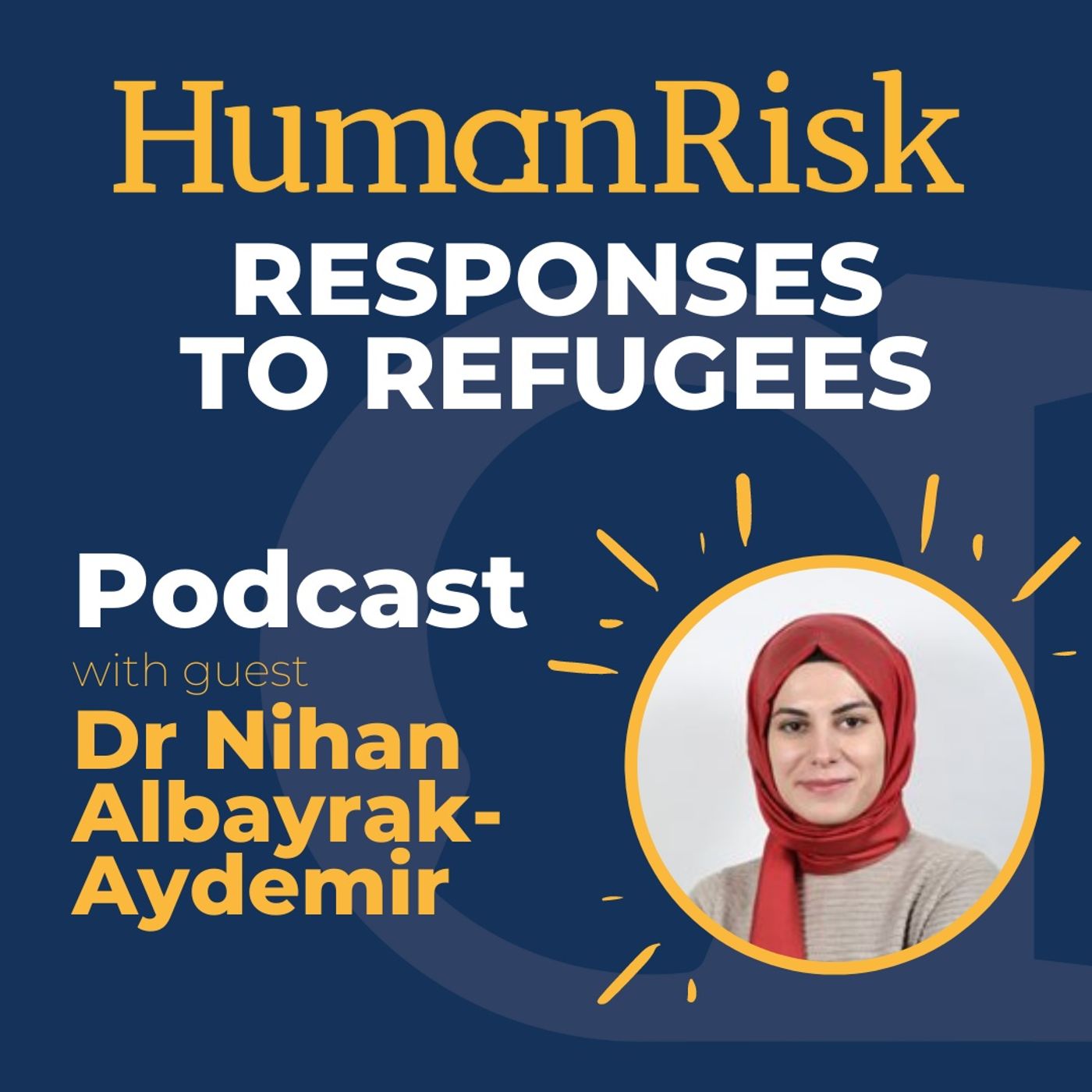Dr Nihan Albayrak-Aydemir on Responses to Refugees

What determines how we individually react to refugees? That’s the question that my guest on this episode, Dr Nihan Albayrak-Aydemir, has explored in her PhD.
Nihan is originally from Turkey and came to the UK to study at LSE - the London School of...
What determines how we individually react to refugees? That’s the question that my guest on this episode, Dr Nihan Albayrak-Aydemir, has explored in her PhD.
Nihan is originally from Turkey and came to the UK to study at LSE - the London School of Economics & Political Sciences.
Nihan was intrigued by the fact that the level of engagement she saw in Turkey towards Syrian refugees was very different to that which she observed in the UK. And she noted changes in her own behaviour.
Her curiosity about what drove this led her to explore the reasons why people might be more or less willing to help refugees. She discovered that there are a number of factors at play — some predictable, some surprising.
If you’re interested in learning more about the concept of bystanding, I recommend listening to an earlier episode of the show on the Bystander Effect with Professor Catherine Sanderson 🎧 👉 https://www.humanriskpodcast.com/professor-catherine-sanderson-on-the/
To find out more about Nihan and her work visit her LSE website: https://www.lse.ac.uk/PBS/People/Nihan-Albayrak-Aydemir
You’ll find Nihan’s research here: https://bpspsychub.onlinelibrary.wiley.com/doi/full/10.1111/bjop.12474
During our discussion, I refer to a Save The Children fundraising video which you can watch here: https://youtu.be/RBQ-IoHfimQ
For more on the Bystander Intervention Model visit https://www.simplypsychology.org/bystander-effect.html




















